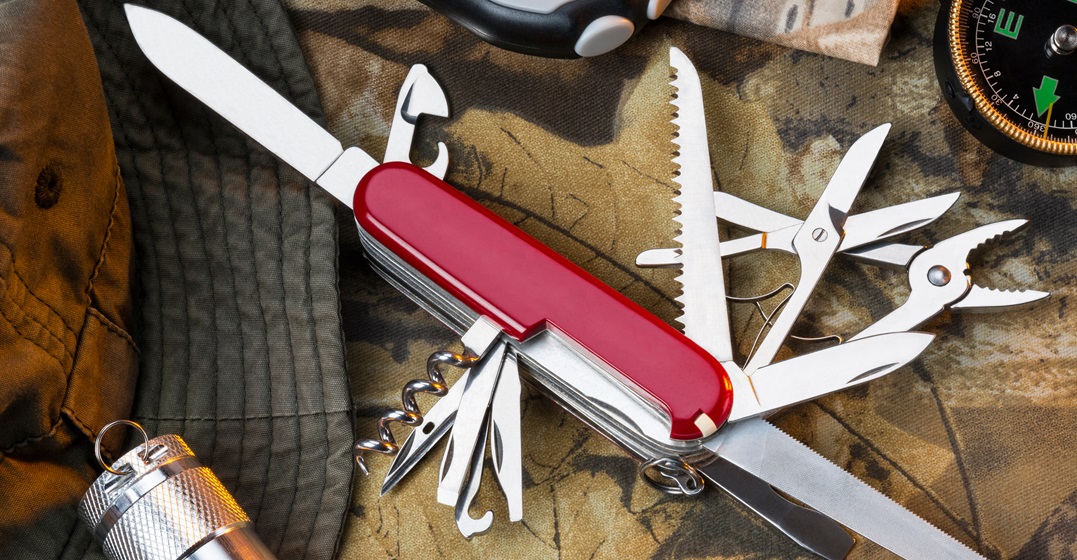by Lea Hauke
Published on April 30, 2024
Switzerland is a fascinating country. Not only does it boast stunning mountain landscapes and a unique political history, but it also lays claim to four official languages: German, French, Italian and Romansh. The resulting cultural mix has led to a variety of interesting developments that people from other countries would today describe as “typical Swiss.”
We’re sure you’re already thinking about some things that seem typically Swiss to you. But our list goes beyond watches and chocolate — and it may have a few true surprises in store.
1. Cheese fondue
2. Winter sports
3. Punctuality
4. Rivella (Swiss soft drink)
5. Swiss watches
6. Recycling
7. Muesli
8. Swiss pocket knife
With over 40 different cheese varieties produced in Switzerland, it’s no surprise that cheese plays a big role in Swiss cuisine. Cheese is an essential ingredient in many Swiss dishes, but it’s especially prominent in the dish Switzerland is perhaps most famous for: cheese fondue.
For this delicacy, small cubes of bread are put on skewers and dipped into melted cheese. The result is delicious — and a great way to make eating an event with a group of friends. In most cases, the cheese is melted inside a fondue pot, but some restaurants serve an entire cheese wheel, melting the middle until it becomes irresistibly gooey.
It’s a broadly accepted stereotype that everyone living in Switzerland knows how to ski or snowboard. This may not be literally true, but winter sports are undeniably popular in this Alpine country. That also says something about the high concentration of wealth in Switzerland, as lift tickets in the Swiss Alps can cost up to 103 Swiss francs (about €107) per day. Make no mistake: winter sports are not financially accessible to everyone, but Switzerland still earns its moniker of “Ski Nation” and a huge percentage of Swiss residents can’t wait to hit the slopes in the wintertime.
While you can’t expect every Swiss person to always be on time, punctuality is indeed a cultural virtue shared among many Swiss people. In this country, being a few minutes early is a way to show that you respect someone’s time.
Even trains in Switzerland are known to be (almost) always on time — a circumstance that never ceases to baffle residents of neighboring Germany, where the Deutsche Bahn is the punchline of quite a few jokes about tardiness.
You either love it or you hate it, but Rivella is a culinary institution in Switzerland. This carbonated beverage is made from milk whey, a rather untypical ingredient for a soft drink. The taste is hard to describe and doesn’t really compare to anything else, though it has been said to resemble cough medicine for children.
Have you ever wondered why Swiss watches are famous? There are several reasons that distinguish them from generic cheaper watches. Switzerland has a long history of watchmaker tradition. If you’re buying a Swiss made watch, you can rely on its masterful craftsmanship. High quality materials like titanium are used to ensure the watch’s durability and accuracy. Swiss watches are widely appreciated luxury articles, another reason why they are selling at high prices all over the world.
Statistics show that people in Switzerland consume a lot and consequently produce almost 707 kilograms of waste per person every year. But due to their meticulous recycling habits, the Swiss recycle more than half of what they throw away.
There are separate containers for different types of waste in Switzerland. Biological waste (e.g. food scraps and coffee grounds) goes into one, and paper and cardboard go into another. There’s also a bin for general household waste and a separate bin for glass, to name just the most important ones.
Did you know that muesli is a Swiss invention? This healthy breakfast was created by Maximilian Oskar Bircher-Brenner, who lent the famous Birchermüsli its name.
The ingredients are simple, but the mix is delicious. Traditionally, rolled oats are soaked in water before they’re mixed with condensed milk, a grated apple and a spritz of lemon juice. Today, many variations of muesli exist, some of which use yogurt or whole-fat milk in place of condensed milk.
The Swiss Army knife is mentioned on so many lists of “typical Swiss” things that it already borders on the cliché. Even so, there’s a good reason for it! The remarkable Swiss knife is essentially a pocket-sized toolbox that can be used for almost anything. There’s a corkscrew for opening bottles, a little knife, tongues and many other features and customizations.
There are many things that people connect with Switzerland. Most typical Swiss things tend to be food-related, from the indulgent (cheese fondue) to the relatively healthy (breakfast muesli). Other typically Swiss things that aren’t mentioned so frequently include the country’s conscious approach to recycling and its amazing bicycle paths.
